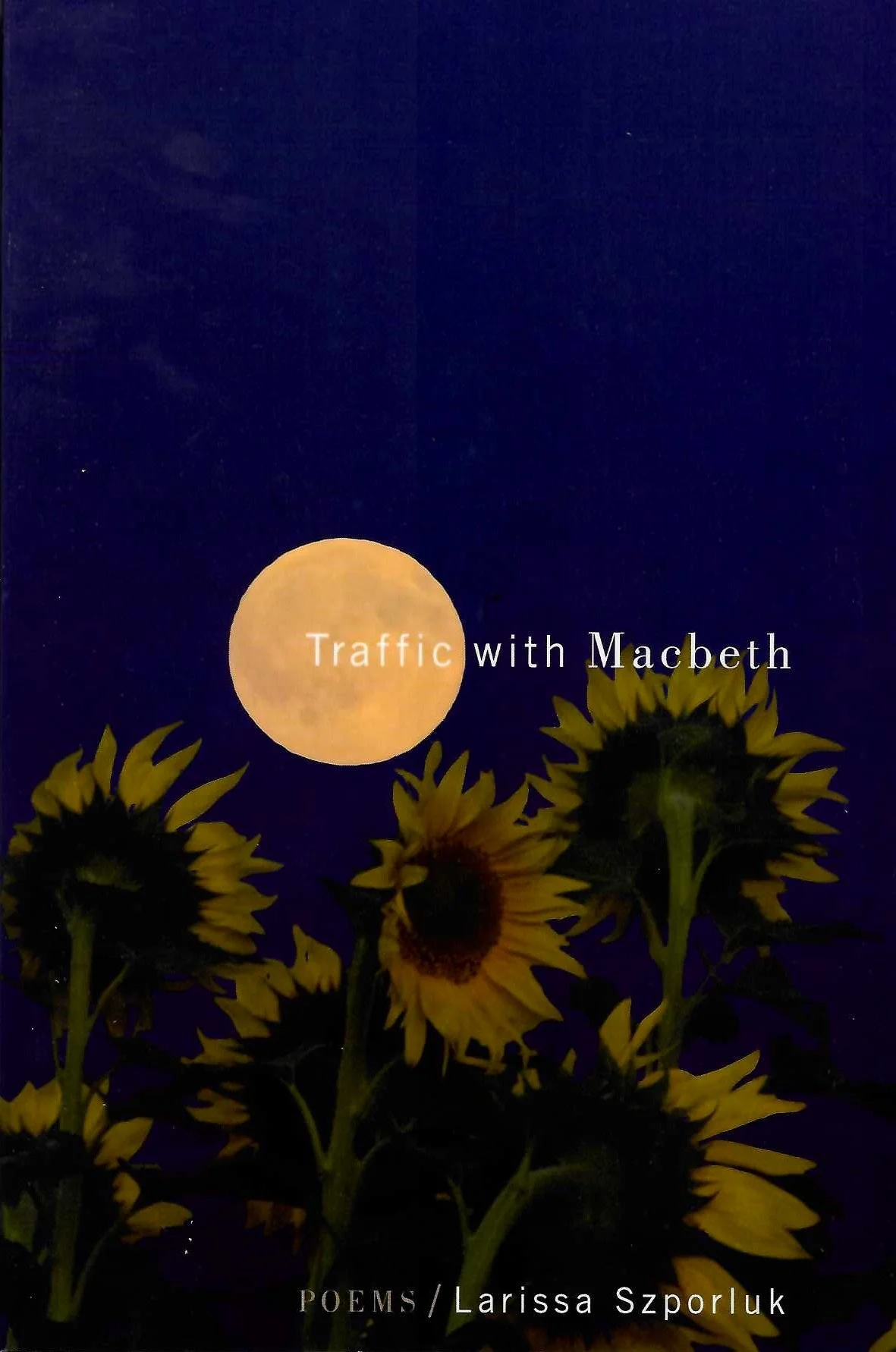About the Author
Larissa Szporluk was raised in Ann Arbor, Michigan and received her BA from the University of Michigan. She studied at the Iowa Writers’ Workshop and received an MA in Literature at the University of California Berkeley, and an MFA from the University of Virginia where she was a Henry Hoyns fellow. She began her full-time teaching career at Bowling Green State University in 2000 and has since become an associate professor of Creative Writing and Literature. In 2005, she was a visiting professor at Cornell University.
She is the author of four previous books of poetry: Embryos & Idiots (Tupelo, 2007), Dark Sky Question, winner of the Barnard Poetry Prize (Beacon Pres 1998), Isolato, winner of the Iowa Poetry Prize (Univ of Iowa, 2000), and The Wind, Master Cherry, The Wind (Alice James Books, 2003). Her work is included in Best American Poetry 1991 and 2001, New American Voices, and numerous other anthologies. In 2003, she received a National Endowment for the Arts grant to work on Embryos and Idiots.
Advanced Praise
“Strange rhythms emerge, less incantatory than fevered. Very short lines dissect the meaning from tall, narrow poems, most extremely in the pointed, taut three-syllable lines of ‘Cold Buffet’ or ‘Harpy.’ Elsewhere, perhaps in echo of the spells of Shakespeare’s weird sisters, wry anapests or primal iambs, crossed with irresistible internal rhymes, nearly collapse their poems into sinister nursery rhymes (‘Tadpole’) or warped folk songs (as in ‘Orrido’) [.]” — Chloe Joan Lopez, The Rumpus
“Like Shakespeare’s play, Traffic with Macbeth is a fearless journey into the depths of myth, the human psyche, and often violence. There is a density to many of the poems, which at times renders them a bit opaque. Yet, so well-crafted are the lyrics that the hard shells of her images beg to be cracked. Images that are impenetrable are simultaneously beautiful and terrible and remind the reader of the artistry of mystery. However, no matter the difficulty of meaning, Szporluk’s tone always rings clear.” — Erik Fuhrer, NewPages
“That we have seen sparse, direct, hyper-paratactic lyricism like this before does not mean we ought not celebrate one of its most talented practitioners. Szporluk is a master of the brief lyric, that focused brand of poetic intelligence that seems but a wisp until it adheres to the soul. Indeed, while the sounds and sights of Traffic with Macbeth are undoubtedly grave and gorgeous, there is also something incantatory—elusively uncanny—in the work. The spell this book weaves is at first too slight to notice; soon enough, however, Szporluk’s dark magic alights on your shoulder and begins its terrible, sublime, irreversible whispering. Haunting and lovely.” — Seth Abramson, Huffington Post
“In order to survive, the poem in its tiny ink must also offer a window into everything. Larissa Szporluk—whose name cannot help but always conjure for the reader its slant rhyme, warlock—is a poet who seeks to answer to this. In her latest collection of poems, Traffic with Macbeth, Szporluk demonstrates for us her own poetic periodic table of elements. Skin and womb, crickets and water, motherliness and eternity—these are the most basic structures of the world rendered in Traffic with Macbeth. They are terrifying, they are pleasing, but above all they are true.” — Sarah Crossland, Devil’s Lake
“Szporluk’s fifth collection evokes an atmosphere as darkly portentous as that of Shakespeare’s play: the book is a wild, clever assembly of lyrics that work through a world of molder and rot, entrapment and transformation, love and—unabashedly—hate. The hallucinatory delight of many of the monologues in this book comes from the poet’s assumption of a variety of speakers who are not psychologized but rather realized at the level of language: in the poem ‘Gargoyle,’ we hear the strange dimeter of the speaker’s ‘feeble dream/ of a mauve wet gut/ of a unicorn-dove,’ or, in ‘Windmill,’ the circling music of heavy enjambment: ‘I can’t cry so I/ smack the extent/ of my face but I/ can’t so I hate/ the oblique of my/ vanes.’ Throughout the collection, Szporluk’s verse, which ranges from dreamy to strange to grotesque, sounds like neither Shakespeare’s pentameter, the rhythm of natural speech, nor like the free verse favored by most contemporary poets, but rather most resembles the clipped, rollicking incantation of the charm of Macbeth’s three witches. Desperate, dense, horrible, and lovely, Szporluk’s work is, to use those witches’ words, a similar ‘charm of powerful trouble.’” — Publishers Weekly
Format: Paperback
ISBN: 978-1-936797-02-8

